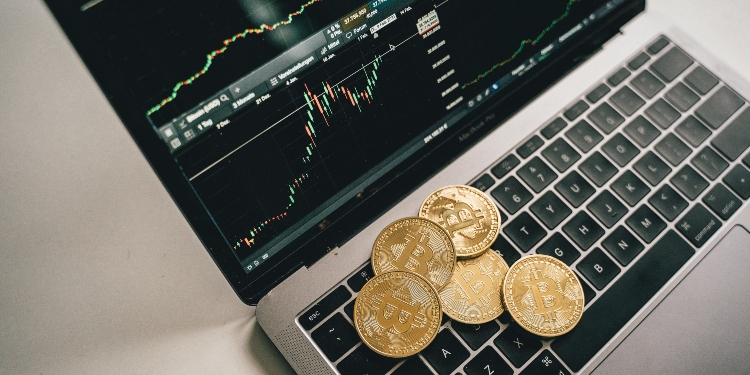In the fast-paced world of trading, both crypto and forex markets have witnessed explosive growth in recent years. With this rapid expansion comes the need for regulation. But why does regulation matter so much in these markets? And how do the rules in place shape the way we trade? Let’s dive into this crucial subject and break it down without the usual jargon.
The landscape of global markets has shifted dramatically with the rise of cryptocurrencies like Bitcoin and the consistent appeal of forex trading. However, both markets have one thing in common: they need regulation to keep things on the right track. Without regulation, the market could become a chaotic and unpredictable place for traders, investors, and even regulators themselves.
In many countries, financial markets are tightly controlled by regulatory bodies to ensure transparency, fairness, and the protection of investors. This is especially crucial in volatile markets like crypto and forex where the risks can be high. The average daily reported UK foreign exchange turnover was $3,351 billion in April 2024, representing a 14% increase when compared to the last survey, which shows just how mainstream these markets have become. But, of course, with great popularity comes the potential for manipulation and fraud – and that’s where the rules come in.
Finding the Best Trading Platform: What You Should Know
When you decide to dip your toes into either the crypto or forex markets, finding the right platform is crucial to your trading experience. In a regulated market, brokers must meet certain standards, which can provide peace of mind for traders. One such platform that has consistently come up in Exness reviews is known for its reliability and compliance with international trading regulations. It’s important to choose a platform that not only offers great tools and resources for trading but one that is also heavily regulated. This ensures that your trades are secure and that you have access to a wide range of assets.
Some platforms go above and beyond, offering features like demo accounts for new traders, advanced charting tools for experienced traders, and top-notch customer service. A regulated broker ensures that the rules they operate under protect your investment, and with Exness reviews highlighting its strong regulatory status, it’s clear that picking a trusted platform is half the battle when entering the trading world.
Crypto Regulation: A New Frontier for Traders
The world of cryptocurrency is still in its infancy in terms of regulation. However, as more people become involved in trading digital currencies, regulators are stepping up their efforts. Different countries have varying approaches to regulating crypto, with some adopting stricter rules than others. For instance, Japan has developed a comprehensive regulatory framework for cryptocurrencies, while countries like El Salvador have embraced digital currencies as legal tender.
In the UK, crypto is classified as a commodity, which means it is subject to certain regulations, though it is far from being as tightly regulated as traditional financial assets. This leaves room for innovation and growth but also brings about challenges, particularly around scams and market manipulation. According to a 2023 report from Chainalysis, scams in the crypto space accounted for over $9 billion in 2022 alone, showing why more regulation is needed to protect traders.
However, it’s important to note that while regulation is important for protecting investors, it also plays a role in fostering trust and encouraging greater adoption of cryptocurrencies. As regulations evolve and become more defined, traders can expect more security and transparency in crypto markets, making it a more attractive space for both newcomers and seasoned investors alike.
Forex Regulation: Setting the Stage for Global Trading
Forex trading has been around for decades, but its complexity and global nature have made regulation a significant challenge. With a daily trading volume of over $6 trillion, forex is the largest financial market in the world. This massive size means that it operates across borders and time zones, making it harder for regulators to enforce a consistent set of rules.
In the US, the Commodity Futures Trading Commission (CFTC) is responsible for regulating forex trading, while in the EU, the European Securities and Markets Authority (ESMA) sets the tone for rules and policies. These regulatory bodies work to ensure that forex trading remains fair and transparent by monitoring brokers, ensuring they operate within strict guidelines, and providing oversight to prevent fraudulent activity.
Just like with crypto, regulation in the forex market can help to maintain stability and fairness. For traders, it provides confidence knowing that the market they are participating in is being watched over and that their funds are safeguarded. Without such regulation, the risk of market manipulation and price manipulation would be far greater, deterring many from participating in this otherwise dynamic market.
The Benefits of Regulation for Traders
Ultimately, the purpose of regulation in both the crypto and forex markets is to create a safer, more reliable environment for traders. The assurance that your trades are being monitored and that there are rules in place to prevent fraud is invaluable. These regulations promote fair competition and help create a level playing field, which is especially important for individual traders who may otherwise feel overwhelmed by larger institutional players.
Regulations also serve to standardise practices across different regions, which is key in global markets like forex and crypto. As the industry continues to evolve, it is likely that the regulatory landscape will become more streamlined, which could make it easier for international traders to navigate these markets with confidence.
David Prior
David Prior is the editor of Today News, responsible for the overall editorial strategy. He is an NCTJ-qualified journalist with over 20 years’ experience, and is also editor of the award-winning hyperlocal news title Altrincham Today. His LinkedIn profile is here.













































































